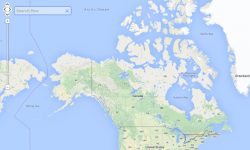- Reaction score
- 1,516
- Points
- 1,260
I love Northern Ontario for hunting and summer recreation and cottaging. Succession, if it were possible, would be business, nothing personal.
First trip out of Toronto in 1966 was on the Dayliner to Peterboro.
It was a Budd car. Used to ride it with my father.


:format(webp)/https://www.wellandtribune.ca/content/dam/thespec/news/federal-election/2019/10/13/one-person-one-vote-in-canada-it-s-not-even-close/B88901985Z.1_20191013151057_000_GSSOLHE2.5-0_Gallery.jpg)

